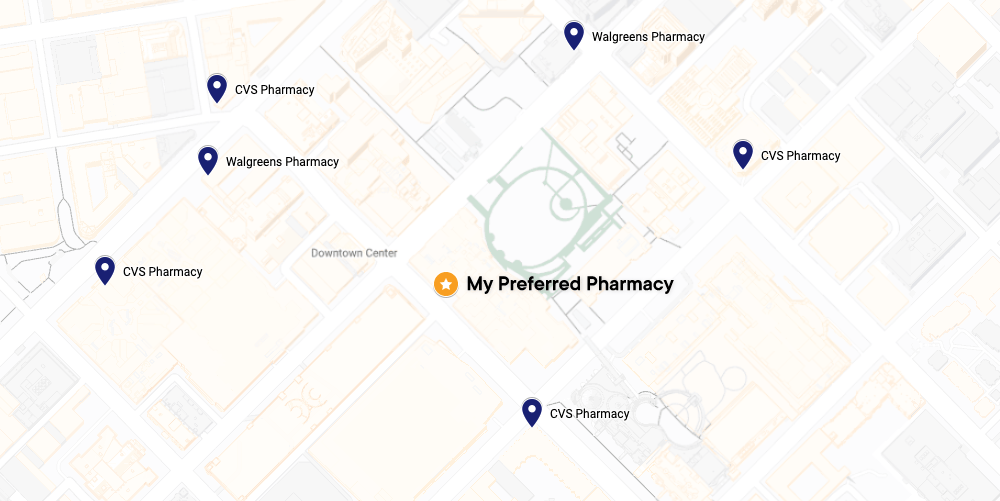
What does a herpes outbreak look like?

Prescriptions are provided at the doctor's discretion. Learn more about our controlled substances policy and how to save up to 80% with our prescription discount card. PlushCare doctors cannot treat all cases of herpes. Our primary care physicians can conduct an initial evaluation of your symptoms but may need to refer you to a specialist or for in-person treatment. If you are experiencing life-threatening symptoms, seek emergency medical attention immediately.
Herpes simplex virus-1 (HSV-1) and herpes simplex virus-2 (HSV-2) are common and highly contagious viruses that cause infections in humans. HSV-1 typically leads to oral herpes, which causes cold sores or blisters to develop around the face and mouth. HSV-2, on the other hand, usually causes genital herpes, which is characterized by sores and lesions around the genitals and anus.1
A large amount of the global population has a variation of herpes however, many people are asymptomatic and do not realize they carry a herpes virus.1 If someone has herpes and experiences their first outbreak, they will have repeated (or recurrent) outbreaks for the remainder of their life. The number of HSV-1 and HSV-2 outbreaks a person experience varies widely.
While there is currently no cure or vaccine for herpes and it is a lifelong condition, antiviral medications can help shorten outbreaks and ameliorate symptoms. Book an appointment with one of our online doctors today to discuss treatment options for HSV-1 or HSV-2, including prescription medication.
What causes herpes?
Herpes is usually spread through direct or indirect contact with sores on another person. 2,3 For oral herpes, this can happen during kissing, oral sex, sharing utensils, or sharing makeup or other personal items. Genital herpes, meanwhile, is primarily passed via oral, vaginal, or anal sex. Pregnant people with an active herpes infection can also spread the virus to their babies during childbirth.1
HSV-1 and HSV-2 can both be transmitted through the skin and mucous membranes, including the nose and mouth, even when there are no visible symptoms. Therefore, preventative methods like condoms, dental dams, and good hygiene are crucial to reduce the risk of herpes transmission.
What do oral and genital herpes look like?
Herpes is often impossible to detect visually because it lies dormant in many people’s bodies for significant periods of time.1,2 Once an outbreak occurs, however, oral herpes in your throat is characterized by painful sores and lesions around the mouth, eyes, nose, chin, or cheeks. 1,2,3 These ulcers are usually referred to as fever blisters or cold sores. Oral herpes often requires a closer look to determine if they are cold sores or pimples. Genital herpes outbreaks cause painful bumps, blisters, and ulcers around the genitals and anus. Sores that appear during any herpes outbreak may break open and ooze before crusting over and eventually healing.
Immediately before an outbreak, patients often experience itching or burning in affected areas. As the sores begin to develop, they may initially look like bug bites, shaving irritation, ingrown hairs, or mild acne. During the first outbreak, patients may also develop flu-like symptoms including fevers, body aches, sore throats, headaches, and swollen lymph nodes. Future outbreaks are typically shorter in length and less severe. Learn more about what STDs look like.
How do I know if I have herpes?
If you suspect you might have HSV-1 or HSV-2, you should contact your doctor immediately to get an official diagnosis. To determine whether you have a herpes simplex virus, your physician will examine and swab any sores that are present and potentially conduct a blood test to detect HSV antibodies.
At PlushCare, our board-certified doctors are available day or night for discreet, online appointments to discuss herpes. If they decide further evaluation is necessary, they will order necessary tests at a lab near you.
Once I have herpes, what causes outbreaks?
First-time and recurrent herpes outbreaks vary in timing and cause, but some conditions may trigger or make you more sensitive to outbreaks. These include menstruation, fevers, being in the sun, stress, surgery, and injury.
What do I do during a herpes outbreak?
During an outbreak of oral or genital herpes, it is important to follow your medical team’s directions regarding treatment and preventing transmission to others. This includes using condoms or dental dams, wearing sunscreen, and taking prescribed medications.2
A few simple at-home treatments may also help soothe symptoms. Eating or drinking cold things can help with oral herpes, and sitting in a warm bath can make genital herpes sores feel better. Over-the-counter pain medications can also be helpful if your doctor deems them suitable for your treatment plan.
One of the most effective ways to manage herpes outbreaks is through prescription medications. Our online doctors can prescribe antiviral medications including Acyclovir, Valacyclovir, and Famciclovir. These medications can help reduce the severity and frequency of outbreaks, alleviate symptoms, and speed up the healing process of sores.
Antiviral medications we offer
- Acyclovir: Often prescribed for both HSV-1 and HSV-2, Acyclovir helps to lessen the duration and severity of outbreaks.
- Valacyclovir: This medication is commonly used for genital herpes and can also be effective for oral herpes. It helps to reduce the pain and discomfort associated with herpes sores.
- Famciclovir: Another effective option, Famciclovir is used to treat both oral and genital herpes, providing relief from symptoms and shortening outbreak duration.
Our online doctors are here to help you find the best treatment plan for your specific needs. With convenient virtual consultations, you can receive a prescription and start your treatment without leaving the comfort of your home.
3 simple steps to discuss Herpes

Book a herpes treatment appointment.
Book a same day appointment from anywhere.

Talk to your clinician regarding your herpes symptoms.
Visit with a doctor on your smartphone or computer.

Pick up prescription for herpes treatment.
How pricing works
30 days of free membership
- Same-day appointments 7 days a week
- Unlimited messages with your Care Team
- Prescription discount card to save up to 80%
- Exclusive discounts on lab tests
- Free memberships for your family
- Cancel anytime
Paying with insurance
Membership
$19.99 /month
First month free
Visits
Copay
Visit price with insurance
Often the same as an office visit. Most patients with in-network insurance pay $30 or less!
We accept these insurance plans and many more:



Paying without insurance
Membership
$19.99 /month
First month free
Visits
$129
Visit price without insurance
Other herpes resources:
Sources:
PlushCare is dedicated to providing you with accurate and trustworthy health information.
- World Health Organization (WHO). Herpes simplex virus. Accessed on October 16, 2024, at https://www.who.int/news-room/fact-sheets/detail/herpes-simplex-virus.
- Cleveland Clinic. Herpes simplex virus (HSV). Accessed on October 16, 2024, at https://my.clevelandclinic.org/health/diseases/22855-herpes-simplex.
- U.S. Centers for Disease Control and Prevention. About genital herpes. Accessed on October 16, 2024, at https://www.cdc.gov/herpes/about/index.html.
- American Sexual Health Association. Diagnosing herpes. Accessed on October 17, 2024, at https://www.ashasexualhealth.org/herpes-testing/.
- MedlinePlus. Herpes (HSV) test. Accessed on October 17, 2024, at https://medlineplus.gov/lab-tests/herpes-hsv-test/.
PlushCare content is reviewed by MDs, PhDs, NPs, nutritionists, and other healthcare professionals. Learn more about our editorial standards and meet the medical team. The PlushCare site or any linked materials are not intended and should not be construed as medical advice, nor is the information a substitute for professional medical expertise or treatment.

